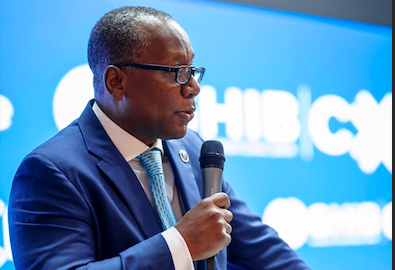Africa is losing out on billions of dollars each year by shipping out raw cocoa, gold, and cashews instead of turning them into chocolate, refined bullion, and packaged nuts, experts have warned at a major global finance summit in London.
At #GHIBCONVERGE2025, hosted by Ghana International Bank, central bankers, industry chiefs, and policymakers called for nothing short of a trade revolution, one that keeps jobs and profits in Africa instead of offshore.Over three days, the forum hammered home the same message: without ports, power, and financing, Africa’s commodities will keep enriching others. Sessions ranged from cocoa case studies and blockchain-based trade finance to the risks of fraud and money laundering in global trade.
“Why should Africa keep exporting raw cocoa when the world craves chocolate? Why send raw gold when refined bullion is worth far more?” asked GHIB CEO Dean Adansi, who led the charge for value addition. He said only 14% of Africa’s exports are processed goods, a figure “stuck for decades” despite massive demand.
The call to action is to create dedicated value-addition funds, build regional processing hubs, and harmonise regulations under AfCFTA so African-made goods can move freely across borders.
Central bankers have also joined in the push. Gambia’s Governor Buah Saidy said refining commodities such as gold in Africa could “anchor currencies, strengthen reserves, and create lasting resilience.” Ghana’s deputy central bank governor stressed that refining gold is about more than revenue, it was about protecting economies from global price shocks.
British politician and GHIB board member Lord Paul Boateng went further, urging Africa to use its resources as geopolitical leverage. “Gold, cocoa, critical minerals — these are not just exports. They are bargaining chips in a changing global order,” he said, warning that the race for electric vehicle minerals could either entrench Africa’s continuing role as a source of raw materials or propel it into high-value manufacturing.
